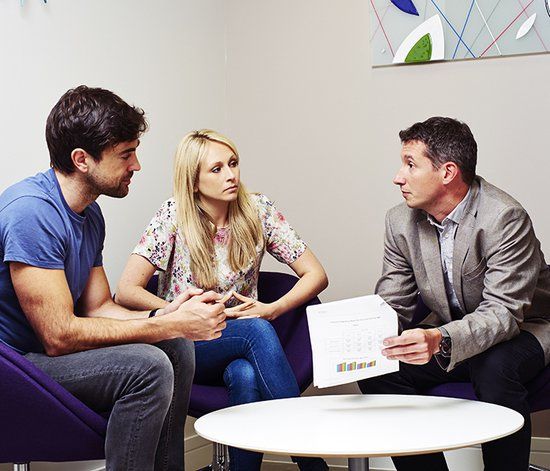
There’s one question many IVF patients ask: Is there anything I can do to influence the outcome of my IVF cycle?
Our fertility consultant Dr Raj Mathur presented a sell-out seminar on this topic - ‘Improving the Odds of IVF Working for You’ - at Manchester’s Fertility Show.
If you missed it or couldn’t attend the show, here’s a useful overview of the main advice which could help make a difference to your IVF journey:
What are the factors that can affect having a healthy baby through IVF?
There are many factors that affect IVF success – defined as a healthy baby and a healthy mother.
And although some of these are outside of our control – such as your age and ovarian reserve – there are other things we can actively change and improve, including nutrition, lifestyle and pre-existing medical issues.
Nutrition, lifestyle and BMI
You and your partner should aim to optimise your general health before you start IVF through a healthy balanced diet, moderate exercise and lifestyle choices.
- Nutrition: There isn’t a ‘magic’ ingredient but certain dietary habits can affect fertility. Such as a Mediterranean style diet rich in wholegrains, fresh vegetables and fruit and fats found in olive oil, nuts and fish.
- Vitamins and mineral intake: All women trying to conceive should take folic acid and vitamin D.
- Lifestyle: Remember that smoking, alcohol, caffeine and drug use can all negatively affect fertility and conception.
- Exercise: Moderate exercise is good for your fertility but avoid vigorous activity. Be especially careful in the week of egg collection and embryo transfer.
- BMI: Try to make sure both your BMIs are within a ‘normal’ range before IVF starts due to the effect of obesity on fertility and pregnancy. If your BMI is very high (above 35) it may stop you being able to start IVF. Get expert dietary advice and support if you need it.
What about stress?
There’s no solid link between IVF outcome and stress but we do know that some aspects of treatment can cause stress and anxiety. You can help manage this by:
- Personal preparation: Communication and relationship strength; who you’ll tell, work arrangements
- Clinic preparation: Choose a clinic you’re comfortable with; get financial clarity – how are you funding treatment; use available counselling services
- Self-care: Feel empowered and in control - get as much information as you can and ask questions; take time out ‘away’ from your journey; consider complementary therapy
Pre-existing medical and gynaecology issues
Any known medical conditions should be controlled before IVF starts and a plan made for how they will be managed in pregnancy.
Gynaecological issues such as hydrosalpinges (fluid filled fallopian tubes), fibroids, endometriosis and uterine abnormalities may need to be treated before IVF starts in consultation with a specialist gynaecologist, to ensure your chance of IVF success isn’t compromised.
Innovations: What’s right for you?
There are lots of new and emerging IVF innovations but they may not be right for you and some may in fact be risky, such as immunotherapy treatments relating to ‘natural killer’ cells.
So make sure you understand any ‘add-ons’ you’re offered and that there is a clear and proven benefit for you.
Preparing for IVF: Manchester Fertility support
If you’re planning to start IVF but are worried about your health or medical issues, speak to our team on 0161 300 2737 for advice.
All Manchester Fertility patients have access to specialist private nutrition and dietary support for pre-IVF help, acupuncture for IVF and have fertility counselling included in treatment as part of our comprehensive patient support services.
Last updated: 18th December 2020








